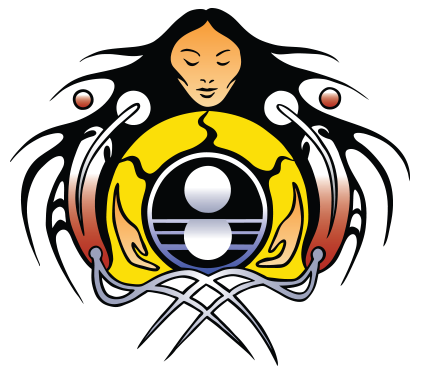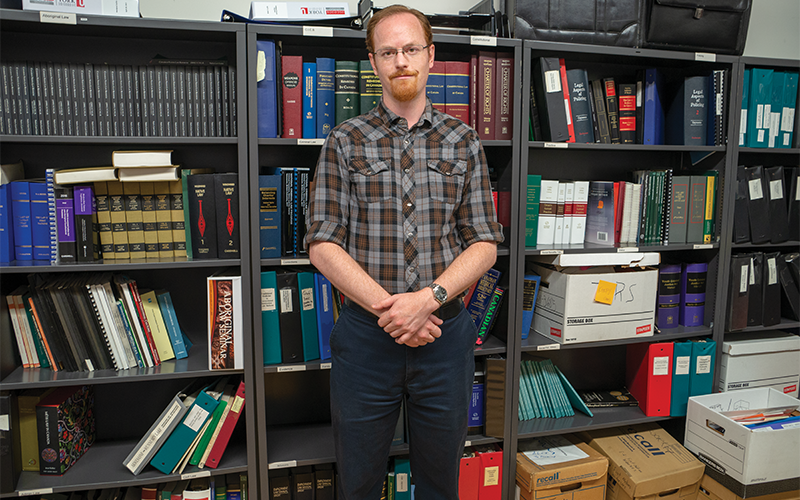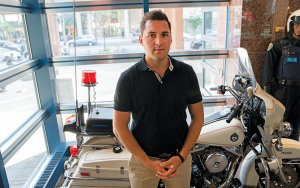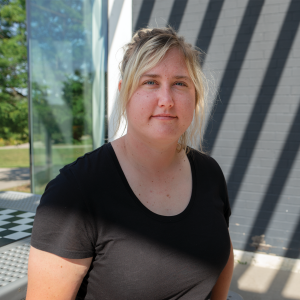Aboriginal Legal Services
DOUGLAS VARETTE moved from Ottawa to Toronto in 2002 to study Film and Television production at Humber College. He graduated in 2006 and worked at a number of film/television jobs. During that time he experienced some personal problems and stopped working in the industry. He spent the next few years moving from place to place and working at odd jobs, barely able to make enough to pay for food or rent. Around 2011, he decided that things had to change and he went back to school, taking up Political Science at York University. For the next three years, Douglas worked a full-time job at a call centre while doing full-time studies.
In 2014, he graduated with honours in the Bachelor of Political Science program. In his final year he spent a lot of time trying to figure out what he wanted to do with his degree, ultimately deciding that he was interested in working in law because he would get the opportunity to work with clients and make a positive impact on their lives. Douglas started law school at the University of Toronto in 2014, just a few months after graduating from York University. Coincidently, during the summer in between graduating and starting law school, he had a landlord and tenant issue arise. The issue started as a small problem with paperwork between himself and the landlord. This ended up escalating into an action at the Superior Court of Justice. He knew he was in over his head and needed help. He went to a local community legal clinic that helped him throughout the process. As Douglas describes it, “it was one of the most important experiences of my life.” He couldn’t describe how much stress and anxiety was lifted away by the work of his lawyer and the legal clinic. He knew then and there that he wanted to work in a legal clinic because he would be able to help people in the same way that he was helped.
After his first year of law school he got the opportunity to work for Aboriginal Legal Services (ALS) for the first time. Douglas spent the summer as a Callwood Fellow working on research projects and learning about the services ALS provides and how they manage their clinic. While he was there he got to meet the Miziwe Biik articling student. The student explained what Miziwe Biik was and how they supported him while he was articling. When Douglas left that summer he knew that he wanted to return to ALS in the future and in his third year of law school he did just that. As a part of one of his courses he was able to volunteer there once a week.
During his third year Douglas went to Miziwe Biik to discuss the programs and services that were available. He explained that he wanted to apply to ALS for their yearly articling position. In order to become a licensed lawyer in Ontario you need to complete a Juris Doctor degree at a law school, write two day-long exams, and complete 10 months of experiential training (or articling). The staff at Miziwe Biik helped Douglas register and complete all of the necessary paperwork for his articling position and facilitated his engagement with ALS.
After graduating from the University of Toronto in 2017, ALS took Douglas on as their articling student and he was supported by the Miziwe Biik trainee program. For the next 10 months he worked under the supervision of a staff lawyer. He took on client files and advocated for community members in various administrative tribunals like the Landlord and Tenant Board and the Social Benefits Tribunal. Douglas was able to shadow and learn from ALS’ lawyers as they worked in a variety of different courts and tribunals. He attended a Coroner’s Act Inquest and went to Ottawa when ALS argued at the Supreme Court of Canada. He was able to work on cases at the Court of Appeal and the Superior Court of Justice of Ontario. ALS also provided Douglas with the opportunity and pleasure of working with many of the Aboriginal agencies in Toronto, and meeting many of its community members. On June 26th, 2018, Douglas was called to the Bar in Ontario. Following years of perseverance and after this great achievement, he counts himself as fortunate that he was asked to stay on at ALS as a staff lawyer.




